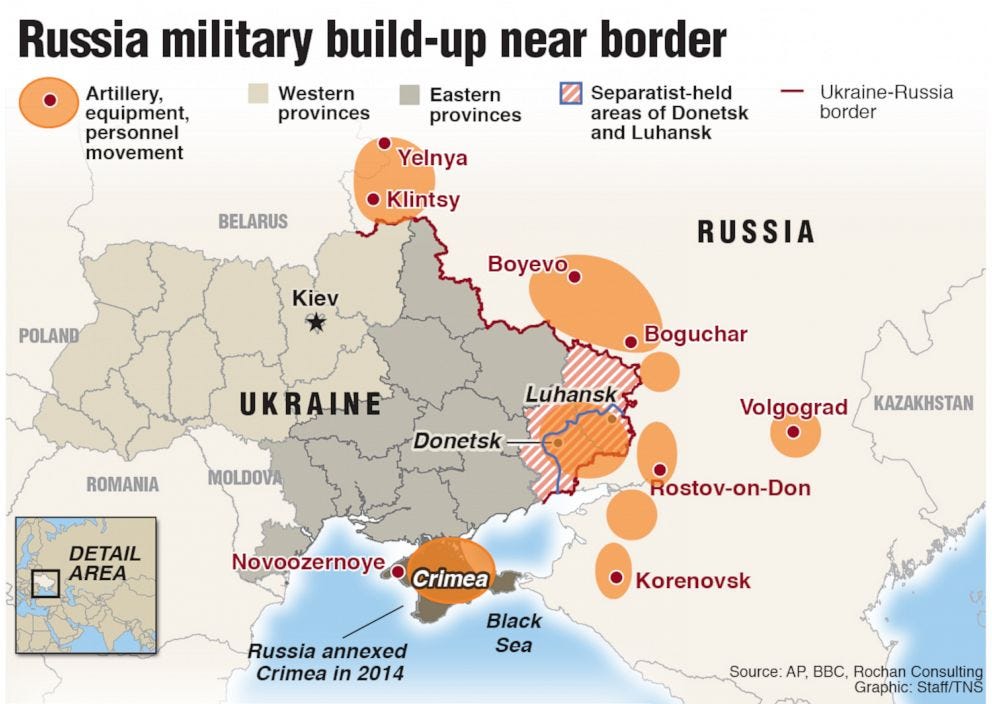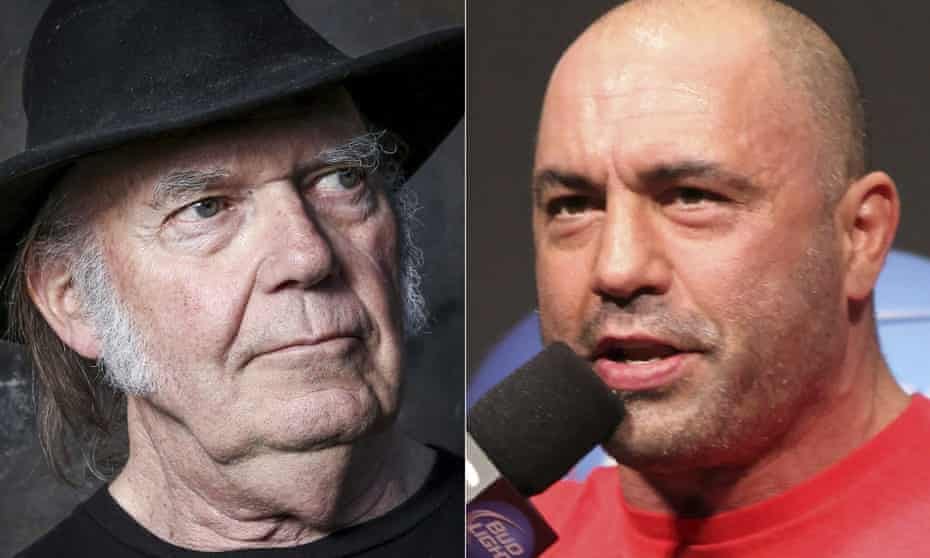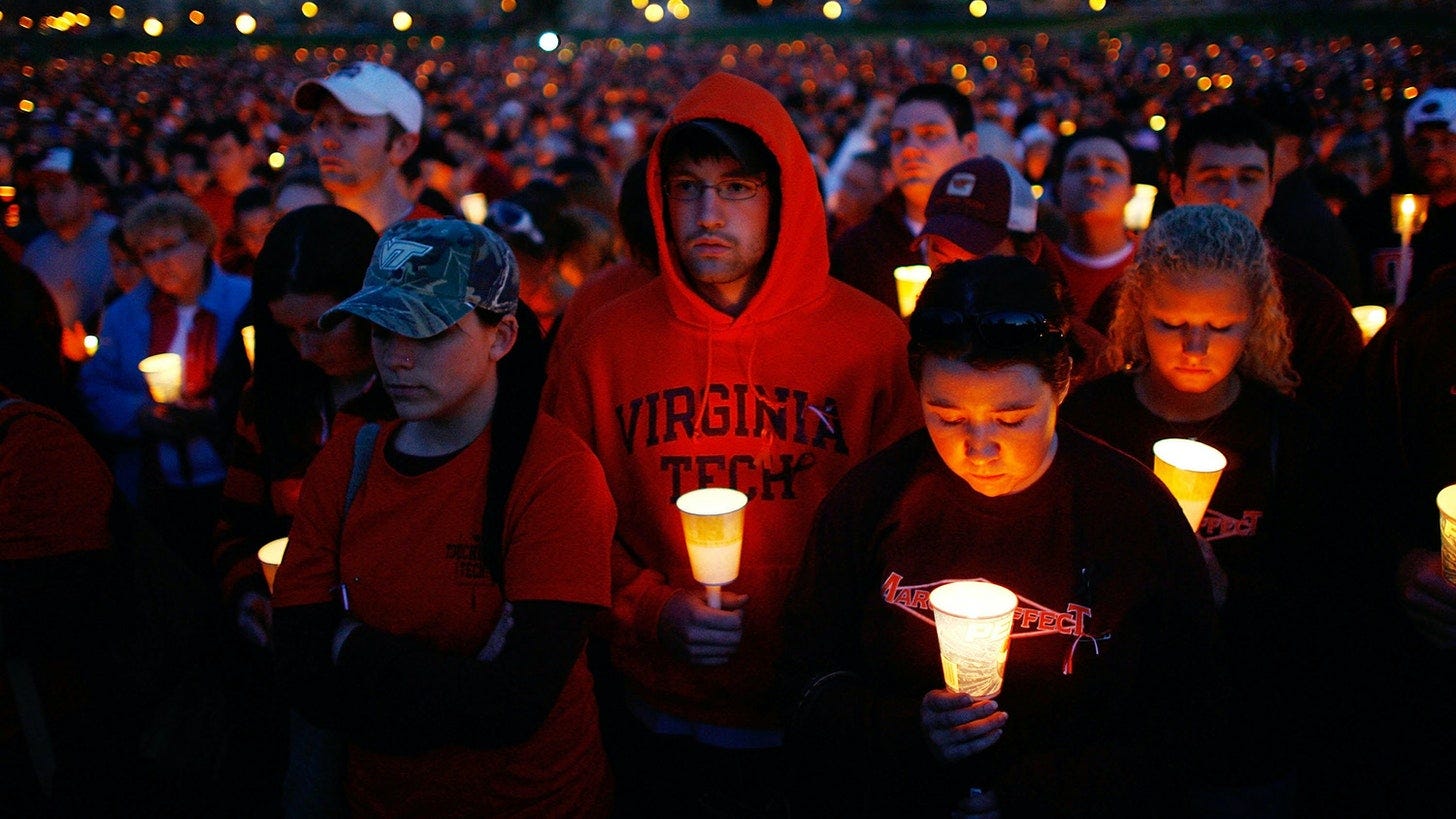Whirled Views
Thoughts on Russia and Ukraine, Supreme Court Nomination, Young vs. Rogan, and Baseball HOF Voting
Dear Reader,
Apart from a few encouraging conversations at church, I haven’t received too much feedback on last week’s podcast on the topic of abortion, but this listener’s text was quite edifying:
“Good Saturday morning! There is no exaggeration in my next statement: best purchase I will make this entire 2022 year is Second Drafts. I always enjoy the newsletter, and I am really enjoying the podcast this morning! I listen to a lot of podcasts throughout the week, and I know Second Drafts will be in my top 5—maybe top 3—of this year.
Thank you for having Catherine on to share her story; she has been such a powerful reminder of how God works our story into His story. Feeling really thankful for God's grace and mercy, and His kindness of giving His faithful children as friends to us. Thank you for all your work!”
To listen to last week’s podcast, become a paid subscriber at $5 for a month or $50 for a year. If you subscribe today, you’ll also receive my first in-depth monthly book review (this one on The World-Ending Fire: The Essential Wendell Berry), which drops Saturday. Just click the button below, select your preferred plan and pay with a credit or debit card, and enjoy!
As always, thanks for reading (or now listening to) Second Drafts.
Craig
Hot Takes
I don’t have a feature for you this week as recent events in the news seem more worthy of attention than any feature article I might write; thus, I’ve dedicated this issue to some longer Hot Takes with commentary and links I hope will be helpful as you engage the world. Agree or disagree? Feel free to email me and I’ll try to include some of your thoughts next week.
Russia and Ukraine
Though I’ve been following the escalating tensions for the past couple of months, if there’s one thing required to make sense of a situation involving states of the Former Soviet Union, it’s background. This, of course, is true of any two countries on the brink of war, but few more so than Russia and Ukraine.
As scholar and author David Koyzis quoted the late, great Aleksandr Solzhenitsyn earlier this week in his blog post, “Russia and Ukraine: A Fraught Relationship,”
“All the talk of a separate Ukrainian people existing since something like the ninth century and possessing its own non-Russian language is a recently invented falsehood. We all sprang from precious Kiev, from which ‘the Russian land took its beginning’…and from which we received the light of Christianity.”
In other words, Russians were Ukrainians first, with Kiev (rather than Moscow) counting for more - culturally, economically, and religiously. Koyzis continues:
“In the Russo-Turkish war of 1768-1774, the Empress Catherine II the Great conquered territory from the Ottoman Turks which she subsequently renamed Novorossiya (Новороссия). This gave Russia a coastline along the Black Sea, which she populated with her Russian-speaking subjects. It was during this time that such cities as Sevastopol and Odessa were founded. Turkic-speaking peoples, such as the Crimean Tatars, continued to inhabit this region, but eventually ethnic Russians became the majority, a status which continues to the present day.
Ukraine enjoyed a brief but troubled independence during the Great War and immediately after, but it was soon incorporated into the new Union of Soviet Socialist Republics as the Ukrainian Soviet Socialist Republic. In 1954 Nikita Khrushchev, then First Secretary of the Communist Party of the USSR, transferred jurisdiction over the Crimean Peninsula from Russia to Ukraine, despite Crimea's ethnic Russian majority. This is something that Russians never forgot.”
Combine this memory with Russia’s Vladimir Putin’s “Destabilizing Ambitions,” and one begins to understand this as more than your run-of-the-mill, next-door invasion:
“Russians have long fancied themselves to be a singular nation with a special historical role to play in unifying the Eurasian continent. From the Third Rome and Holy Russia to Mother Russia and the homeland of socialism, Russians have seen themselves as a people set apart from the others. Nikolai Berdyaev's The Russian Idea and Solzhenitsyn's The Russian Question at the End of the Twentieth Century represent efforts to define the unique character of the Russian people and to underscore its importance for the world. Perhaps only the United States has a comparable sense of its own historical significance.
Putin has become skilled at exploiting these three features of the Russian political culture for his own purposes. A former KGB intelligence officer during the Soviet era, he was schooled in the ethos and strategies of the organization and brought these into the presidency. Although he was compelled to join the Communist Party as a career move, today, by contrast, he has advanced his own leadership by tapping into the traditional ways and mores of the Russian people, including Christianity and the Orthodox Church. As such, he sees himself as a defender of the family and an opponent of western decadence, a status that has inexplicably endeared him to some western conservatives. Putin is a savvy politician who knows how to divide his potential foes to enhance his own status. He had a former American president in his thrall, and the current occupant of the White House has been disappointingly weak in his dealings with him.”
All this makes for a perfect storm of potential conflict, which Koyzis writes about and elaborates on in “Ukraine’s Impossible Dream”:
“Given the divided character of Ukraine, these goals are almost certainly mutually incompatible. With the southern and eastern sections of the country within the Russian cultural orbit for more than two centuries, we cannot reasonably expect that their inhabitants would countenance full membership in the EU and NATO, which they perceive to be inimical to their own interests and to those of their close neighbors across the border in Russia. Even if Moscow were to tolerate such affiliations, which is unlikely, western-leaning Ukrainians would view their restive compatriots in the Donbas and Novorossiya as potential or real fifth columnists, ready to betray their country to the Russian Federation's interests.”
Suffice it to say, the relationship between Russia and Ukraine is and always has been complicated. Before the U.S. readies and sends American troops over to “help,” we might press the Biden Administration on if it knows what “help” really looks like.
Supreme Court: Representation or Qualification?
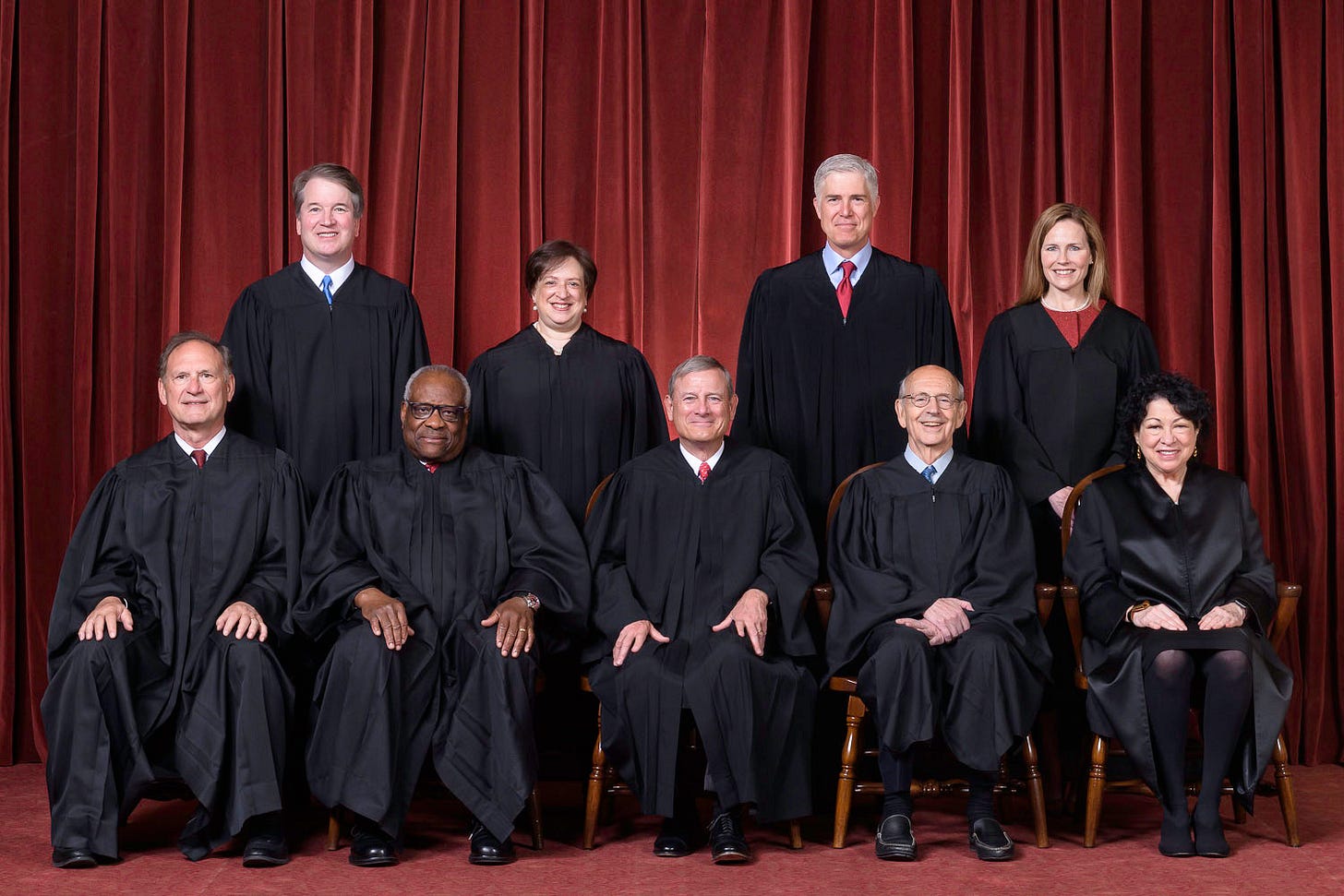
When news broke this week of Supreme Court Justice Stephen Breyer’s plans to retire, much was made of President Biden’s previously-stated desire to nominate a black woman for the Senate to consider as Breyer’s replacement:
“During a press conference in Delaware in June 2020, President Joe Biden said that he hoped to appoint a Black woman to the Supreme Court if the opportunity presented itself. Now, in wake of the retirement of Justice Stephen Breyer, Biden intends on fulfilling his pledge.
‘We are putting together a list of a group of African American women who are qualified and have the experience to be in the court,’ he said during the 2020 conference. ‘I am not going to release that until we go further down the line of vetting them.’”
Much to Republicans’ chagrin (though they have no real room to complain considering the shenanigans that Mitch McConnell and company pulled in delaying President Obama’s selection of Merrick Garland to replace the late Antonin Scalia in 2016), the nomination is Biden's to make, and as President, he should be able to nominate and have the Senate approve a nominee.
Unfortunately, by stating that his candidate must be black and female has nothing to do with the candidate’s commitment to the Constitution and rule of law, but instead ethnicity and sex. This same preoccupation with representation rather than qualification is how we got our current Vice-President, who was never popular as a presidential candidate with her own party in the primaries, and is even less popular now not only with the American people but her own staff, which (of course) is being blamed on racism and sexism. But Kamala Harris was chosen to be Vice-President for no other “accomplishment” than because she was a black woman, and, as the Administration’s first year has played out, it’s obvious she is not capable in the role, and many in her own party have concerns about her being on the 2024 ticket.
To be sure, I have no problem with a black woman as a Supreme Court Justice (nor am I saying a black woman cannot be qualified), so long as she is the most qualified for Constitutional reasons, not ethnic or gender ones. It’s one thing to vote out a Vice-President “elected” for politically correct reasons after four years, but a Supreme Court appointment is for life. (Just for kicks, here’s a theory that checks all of Biden’s Supreme Court boxes and solves his Vice-President running mate issue.)
Neil Young: In Need of a New Free World in Which to Keep on Rockin’
Some interesting doings in the music world this week (or at least the music world I once knew—I’m pretty sure I stopped buying and/or listening to new music around the time we had our fourth and final child, which would have been circa 2003).
As singer/songwriter Bruce Springsteen sold his music catalog for half a billion dollars to Sony Music last month, news of Bob Dylan selling his catalog to the label back in July came out this week, a deal estimated to be worth $150 to $200 million.
“Sony Music Entertainment today announced it has fully acquired Bob Dylan’s entire back catalog of recorded music, as well as the rights to multiple future new releases, in a major expansion of SME’s six-decade relationship with the artist…
…This agreement, concluded in July 2021, comprises the entirety of Bob Dylan’s recorded body of work since 1962, beginning with the artist’s self-titled debut album and continuing through 2020’s ‘Rough and Rowdy Ways.’
But when you’re Bob Dylan, there’s a lot of music to go around. His deal with Sony comes on the heels of a 2020 sale netting him twice what he earned this time around:
“Late in 2020 Dylan sold his song catalog to Universal Music Publishing for an amount sources say was near $400 million; he also donated his personal archives to the Bob Dylan Center in Tulsa, Okla., which is scheduled to open in May of this year.”
New field trip destination aside the next time we’re back in Oklahoma visiting Megan’s family, Dylan seems to be working the system a little better than his contemporary Neil Young (though it will be interesting if Sony licenses out any tunes for commercial purposes—“Blowin’ in the Wind” for a wind farm ad? “All Along the Watchtower” for a Jehovah’s Witness PR campaign?)
Earlier this week, Young, who in January 2021 sold 50% of his publishing rights to a UK investment fund for reportedly $150 million dollars, demanded by way of his management company that Spotify choose between him or enormously popular podcaster, Joe Rogan, whom Young accused of spreading misinformation about Covid-19. It didn’t take long for the Swedish music streaming service to make its decision, and just like that, Young was out.
As a friend and Second Drafts reader wrote on my Facebook page,
“Artists, of all people, ought to be the biggest champions of free speech we have, and traditionally they have been. So when I see an artist attempting to use his influence to cancel someone else’s right to be heard, I have zero sympathy for them. None. I simply cannot stand bullies. Neil Young became Neil Young precisely because of the very same right to free expression that he is now trying to deny Joe Rogan.”
Agree 100%; it was Young’s loss for calling the question, and kudos to Spotify for sticking to their guns and standing against a “cancel culture” attempt. I don't think of Young as a bully as much as a baby for threatening to take his ball and go home.
That said, as a fan of his music and in his defense, I was disappointed by how Not the Bee, a sister news site to the satirical Babylon Bee, threw some shade on him and his music merely on the basis of his/its age and unfamiliarity to younger ears. It seemed a cheap shot and spoke more of their triteness than of Young's reasons (good or bad).
Rest assured, I got a good couple of listens in to “Heart of Gold” and “Rockin’ in the Free World”—two of my favorites—before Spotify officially pulled the plug last night. And I have Harvest Moon on CD, so I’ll be okay (as I’m sure Young will be).
They’re Out: A Few Thoughts on Baseball Hall of Fame Voting
I’m always torn about baseball Hall of Fame voting. When it comes to baseball, I’m one of those annoying purists—possibly because I grew up a Cardinals fan 100 miles north of St. Louis and gravitate toward the likes of classy players like Stan Musial and Albert Pujols—but I don’t think it’s due just to the fact I was a Redbirds fan. I was never a fan of Mark McGwire and his performance-enhanced forearms.
In case you missed the news about the voting (congratulations to Boston Red Sox’s David Ortiz for getting in, by the way),
“Tuesday night, the 2022 National Baseball Hall of Fame class was announced, and two historic names were left off of the ballot for the 10th and final time. Barry Bonds and Roger Clemens failed to garner the necessary 75% of the votes in order to be elected, officially ending their chances of being elected to the Hall of Fame by the Baseball Writers’ Association of America members.”
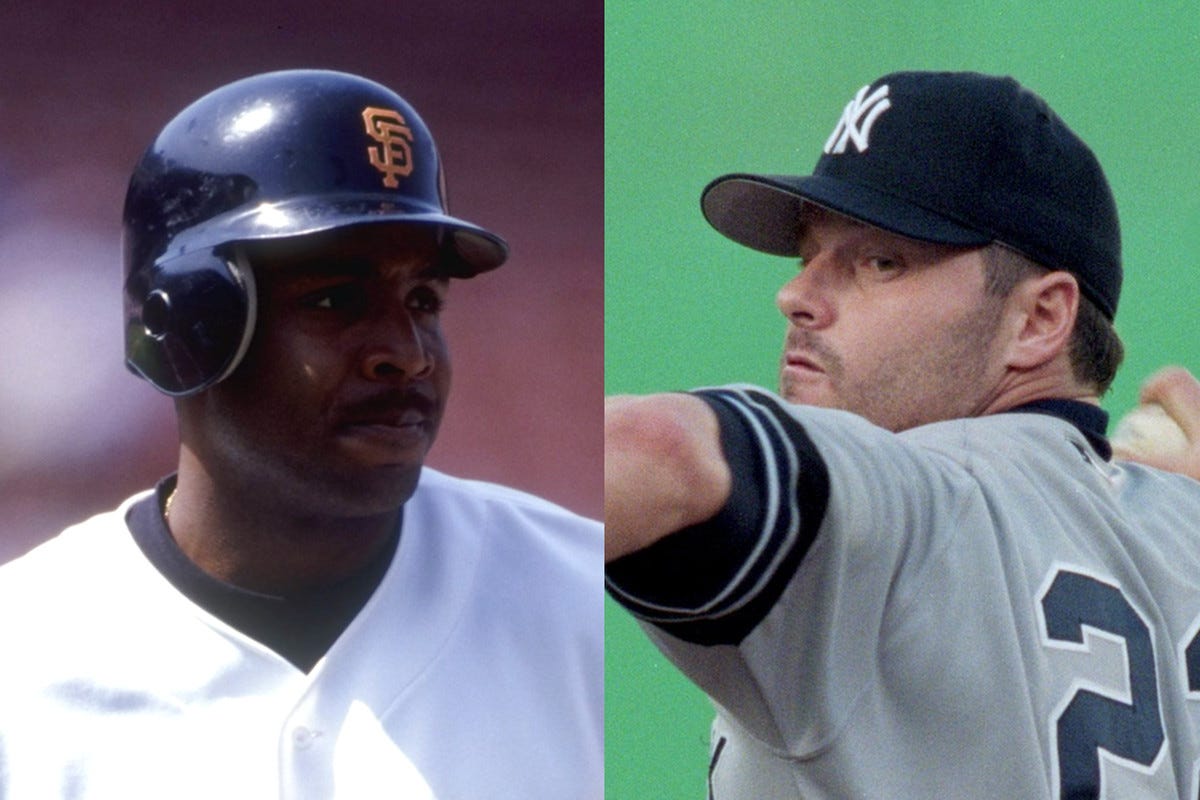
Bonds and Clemens, as well as former Cubs player Sammy Sosa—all three of whom, along with McGwire and others, used PEDs in the 1990s—join the likes of Pete Rose who will never make it into the Hall. (For the non-fans among us, Rose was banned from baseball in 1989 for betting on his Cincinnati Reds team when he was manager.)
And I don’t have a problem with that. But sportswriter Joe Posnanski does. In his Joe Blogs Substack, Posnanski wrote on Wednesday,
“It is incredible, every year, re-litigating the 1990s, what other sport does that? What other sport—what other form of entertainment—keeps going back every year to a contentious time a quarter-century earlier and keeps harping about it? So is that the reason the Hall of Fame exists? Is it to scapegoat a handful of amazing but not-overly likable players so that we can just blame them for an era when nobody cared about steroids?”
Despite having played baseball for as long as I can remember until I graduated high school in 1989, my interest in the game waned at the beginning of the 90s. Enter the 1994 strike, in which millionaires and billionaires were arguing over money to play a game, as well as the blatant cheating going on with steroids in the mid-to-late 90s, and baseball—the perfect game, the game I loved—became nearly dead to me. It wasn’t until we lived in St. Louis from 2005-2011 that I began to be interested again.
In answer to Posnanski’s questions, no, I don’t think scapegoating is why the Hall exists, but I also don’t think those players who intentionally cheated off the field should knowingly—even after the fact—be rewarded for what they did on it.
Posnanski then throws a little slider, asking what’s the worst that could happen?
“Sure, there might be some awkwardness on induction day, and there would be some people who would turn away, and some who would hold their noses and some who would threaten to never visit Cooperstown again, and even some, I’m sure, who would say that they were giving up their baseball fanhood…All that would happen is that there would be a few more plaques in the Hall of Fame featuring a few more flawed men who played baseball impossibly and gloriously well.”
Then he throws a hard fastball to brush back assumptions he doesn’t care about rules:
“It’s a game, a fun game, the best game in my book, and yes, we want fair play, and yes, cheaters should be punished, and yes, rule-breakers should pay the consequences and all of that.”
And here’s a Sandy Koufax curve that seems more idealist than my purist thinking:
“The Baseball Hall of Fame voting should not be an annual conference on morality and sportsmanship. It should be about doubles and homers and sliders that catch the corner and diving plays and scoops out of the dirt and rising fastballs and that moment when the runner rounds second and decides to go for the triple.”
It’s a 3-0 count (at least by my umpiring) and I (along with this sportswriter from Seattle) have not yet seen a pitch I can hit as to why some of the worst known cheaters in the game should be honored with inclusion in the Baseball Hall of Fame.
We’ll see if any of my readers let me take my base.
Post(erity): “Tragedy Capturing”
Each week, I choose a post from the past that seems apropos of something. This week’s Post(erity) post, “Tragedy Capturing,” comes from April of 2007 and briefly considers the role of the media—specifically in light of the shooting at Virginia Tech, as well as generally in our everyday lives. An excerpt:
“…When I finally got home Monday evening and turned on the news, I found myself actually talking back to Brian Williams on NBC, begging him to stop posing for the camera and over-dramatizing his lines while he interviewed students who had almost lost their lives in the horror of the day…Reporting the news has gone beyond reporting the news; it's all about ‘tragedy capturing’ now.”
Fresh & Random Linkage
“McDonald’s Menu Hacks” - Yes, these are real. And you know you want one (or at least that’s what McDonald’s is counting on on January 31).
“Scientists Used Computer to Predict Exactly When Society Will Collapse in 21st Century” - 2040 is when it’s all supposed to fall apart; my guess is earlier.
Until next time.
Why Subscribe?
Why not? Second Drafts is a once-a-week newsletter delivered to your inbox and it’s totally free. To receive additional monthly content (podcast, book review), subscribe for $5/month.
Keep Connected
You’re welcome to follow me on Twitter.


